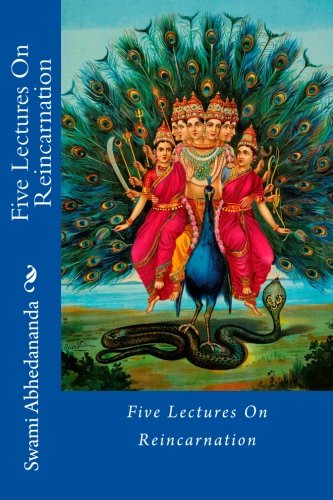What do you think?
Rate this book


Swami Abhedananda was born on October 2, 1866 named Kaliprasad Chandra. He was a disciple of Sri Ramakrishna and was known as "Kali Tapaswi" to his fellow disciples. After the death of Sri Ramakrishna, he became known as Swami Abhedananda. He was a forceful orator, prolific writer, yogi and intellectual. He traveled extensively throughout India. The five lectures in this collection are Reincarnation, Heredity and Reincarnation, Evolution and Reincarnation, Which is Scientific, Resurrection or Reincarnation, and Theory of Transmigration.
48 pages, Paperback
First published April 1, 1996